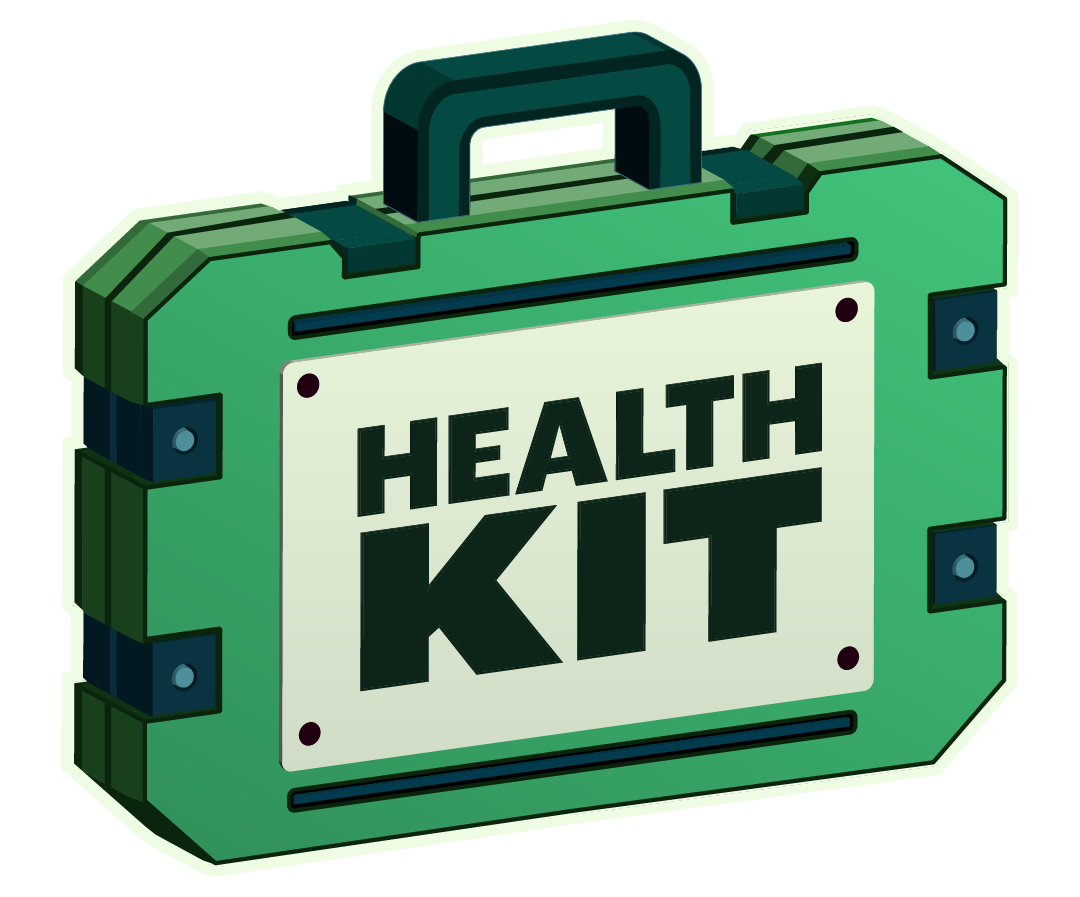Doctors explain why abusing ADHD meds won't help esports players
Clearing up misunderstandings about Adderall and other stimulants, and the risks of using them if you don't have ADHD.

"I don't even give a fuck," Semphis said, turning to the camera. "Like, it's pretty obvious if you listen to the comms."
In the middle of an otherwise typical interview, professional CS:GO player Kory 'Semphis' Friesen had just admitted that his entire team took Adderall when they played. The interviewer treated this as the most ordinary thing in the world, asking the followup, "Everyone does Adderall at ESEA LAN, right?" And when Semphis agreed, said, "Just throwing that out there for the fans, that's how you get good."
The ESL did not consider this the most ordinary thing in the world. The organization instituted randomized testing for banned substances in 2015, and added Adderall to the list. Other esports leagues have not. In 2018 Overwatch pro Timo 'Taimou' Kettunen said during a livestream, "There's probably like 20 players who use Adderall in the League", and when a clip of that was tweeted, Gears of War and Fortnite pro Jimmy 'HighDistortion' Moreno replied that "easily over half the players" in the competitive Gears of War community took it as well. In 2019, former Call of Duty world champion Adam 'KiLLa' Sloss stepped away from competitive play to focus on streaming. "The Adderall abuse was too much to keep up with," he told the Washington Post.
Dude the GoW community has easily over half the players using it.November 12, 2018
Based on these anecdotes, use of Adderall and other prescription stimulants seems to be widespread among American players. Why are esports pros taking stimulants prescribed for people with ADHD?
"Adderall is a prescription stimulant, so one of the first effects it will have is increased alertness, similar to caffeine," says psychologist Dr. Ari Tuckman. That's part of why Adderall has a reputation as a "study drug". One of its effects is to keep you awake, but people also take it due to a belief that it improves concentration. As Dr. Tuckman explains, "Folks with ADHD use prescription stimulants because it also helps with focusing attention and resisting distractions."
I can back this up, because I have ADHD. I don't take Adderall because here in Australia different medications are available, but I do take a prescription stimulant every day. I had to see both a GP and a psychiatrist to get that prescription, trialled a low dose to see if I was allergic, and then increased the dose until it had an effect, checking in with my psychiatrist to report any side effects. Someone who is buying pills over the internet is not going to have the same experience.

Health Kit is PC Gamer's coverage of health, ergonomics, and wellness, which is currently being produced with support from AMD. Throughout the rest of 2020, we'll be publishing more health-related articles and videos with advice from specialists. More:
How to configure your mouse so it doesn't hurt you
What should I do if I have wrist pain?
9 simple ways to make your desk healthier and more comfortable
How to sit at a desk with good posture
"The most common side effect of prescription stimulants is appetite suppression," says Dr. Tuckman, "although typically not much weight loss since one's appetite re-calibrates. They can also make it harder to fall asleep at night if you have too much in your system at bedtime. Some folks feel anxious, jittery, or their heart rate and blood pressure go up". That's definitely a worry for people with heart problems, and one of the reasons a GP is typically consulted before treatment.
Keep up to date with the most important stories and the best deals, as picked by the PC Gamer team.
Personally, I've been lucky with side effects and the main one I experience is simply a dry mouth. However, people who have increased heart rate and anxiety experience them more as dosage increases, and there's no medical professional helping esports players ensure they're taking the right amount of pills.
The other danger of taking prescription stimulants without medical supervision is addiction, which is also more likely to become a problem if too much is taken. "They are not addictive if taken in standard doses", Dr. Tuckman says. "ADHD is a risk factor for addiction and using a stimulant actually decreases that risk. However, someone who doesn't have ADHD runs the risk of building a tolerance and then addiction if they use these meds. And escalating the doses, especially beyond the standard ranges, also increases the risk of addiction."
Ultimately though, if you don't have the skills, it doesn't matter what you take.
Dr. Ari Tuckman
There's a persistent belief that ADHD is overdiagnosed, and that doctors in the pockets of Big Pharma cheerfully hand out Ritalin to kids regardless of any risks. And yet, in reality ADHD can go undiagnosed until late in life and the side effects for prescription stimulants, when taken with medical supervision, are often minor. Like I said, I get a dry mouth. I should probably have been drinking more water anyway.
Psychiatrist Dr. William W. Dodson agrees, pointing out that the potential dangers of abusing ADHD medication are if anything over-researched. "In the last 10 years there have been 16 studies on the rate of diversion and abuse of ADHD medications on college campuses", he notes. Meanwhile, the mechanism for their effectiveness is comparatively poorly understood and under-studied. "This is because the researchers do not want to challenge the narrative that these drugs are highly abused and that they need to be paid to study the phenomenon."
Dr. Dodson says that stimulants being declared controlled substances in the US has "scared a lot of people and made the medications 50 times more expensive than they should be." He's glad that the EU's Practice Guidelines have "gotten away from this crap," though, reiterating that these medications are "not addicting and not abusable by people who really have ADHD."
Stimulants won't make you a better gamer
Performance-enhancing drugs aren't banned solely out of concern for the players who abuse them. Their use is theoretically unfair to other competitors. There's no evidence that ADHD medication makes you better at videogames, however.
"Folks with ADHD use prescription stimulants because it also helps with focusing attention and resisting distractions", Dr. Tuckman explains. "So, someone without ADHD who takes something like Adderall will feel more alert and focused, but it will not be as helpful as it is for someone with ADHD who struggles much more with attention. It's like how your friend's glasses give him 20/20 vision but don't make your 20/20 vision even better."
In other sports, steroids have measurable benefits in the form of improved recovery times, added muscle mass and increased strength. Dr. Tuckman is skeptical of the idea that stimulants would improve the competitive ability of esports players in a similar way. "I suppose there might be some benefit for some of them," he says, "but if they are using it as a way to cut corners on things like sleep or to stay focused beyond their brain's actual ability to sustain attention, then it won't actually work out as well as they might hope. Ultimately though, if you don't have the skills, it doesn't matter what you take."

It's like how when you're drunk you think you're much more hilarious than your sober friends think you are.
Dr. William W. Dodson
Dr. Dodson compares the effect prescription stimulants have on neurotypical people to that of a couple of cups of coffee. The effect feels more dramatic, but there's a huge gulf between feeling smarter and more alert and actually performing better. There's a placebo effect involved too, with the expectation that a 'magic pill' can make you better resulting in increased confidence. "It's also important to keep in mind that you may feel more focused and like you are performing better," says Dr. Tuckman, "but objectively you may not be. It's like how when you're drunk you think you're much more hilarious than your sober friends think you are."
I can confirm that medication has not transformed me into a killstreak pro, and simply brings my ability to focus up to a "normal" level, an effect that would be negligible for a neurotypical person. As Dr. Dodson says, "There are only three things that have been consistently able to improve either cognitive or physical performance but they are not sexy ... a balanced diet, restorative sleep, and aerobic exercise."
There's another possible explanation for why players believe ADHD medication is helping them, and it's a simple one—that they have undiagnosed ADHD.
The connection between videogames and ADHD has been observed by plenty of concerned parents who think playing games has ruined their kid's attention span, but in reality the link goes the other way. A recent Norwegian study showed that playing videogames neither caused nor increased the severity of ADHD in children who have it, but did find that those children played more games. Videogames are excellent at holding our attention, fine-tuned to be constantly rewarding and interactive. I find it hard to sit through one episode of a TV show without needing to take a walk around the room, but I play games for hours. A lot of people with ADHD play games, whether they know they have it or not.
There are innumerable blowhards out there who spout off without the slightest evidence that ADHD is overdiagnosed and overtreated.
Dr. William W. Dodson
And a lot of people don't know they have it. ADHD has symptom overlap with anxiety and autism, and comorbidity with other conditions, which can result in misdiagnosis. While ADHD symptoms are often noticed in children, the diagnostic criteria were created with them in mind, so those who develop ADHD as teenagers or are missed as children often go undiagnosed for years. At least until one day you read a description of somebody's experience and realize the list of personal failings you've been carrying around since you were 15 is actually a list of treatable symptoms. There's a meme that's been passed around a lot in ADHD communities, a Tumblr post that says, "Either people with ADHD need to stop being so relatable or I need to go to the doctor".
So, I ask Dr. Dodson, is it possible that at least some of the players who believe ADHD medication is making them better at videogames feel that way because they have ADHD and just don't know it? "Yes," he says, "that is an obvious possibility and even a statistical certainty. There are innumerable blowhards out there who spout off without the slightest evidence that ADHD is overdiagnosed and overtreated. The Federal government has looked into that six times and every time they've found that we still miss the diagnosis two out of three times." As Dodson points out, it would be scandalous if diabetes or cancer went undiagnosed that often, "but it is tolerated in ADHD and indeed we have to fight the morons who want to insist that we are diagnosing it too much."

Jody's first computer was a Commodore 64, so he remembers having to use a code wheel to play Pool of Radiance. A former music journalist who interviewed everyone from Giorgio Moroder to Trent Reznor, Jody also co-hosted Australia's first radio show about videogames, Zed Games. He's written for Rock Paper Shotgun, The Big Issue, GamesRadar, Zam, Glixel, Five Out of Ten Magazine, and Playboy.com, whose cheques with the bunny logo made for fun conversations at the bank. Jody's first article for PC Gamer was about the audio of Alien Isolation, published in 2015, and since then he's written about why Silent Hill belongs on PC, why Recettear: An Item Shop's Tale is the best fantasy shopkeeper tycoon game, and how weird Lost Ark can get. Jody edited PC Gamer Indie from 2017 to 2018, and he eventually lived up to his promise to play every Warhammer videogame.

